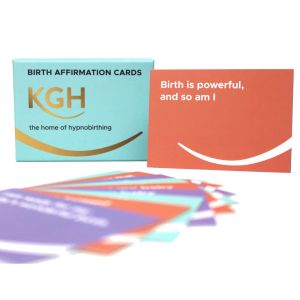Homebirth With Group B Strep – Angela Horn
GBS is not routinely tested for in the UK because the expert opinion is that the increased intervention arising from the high number of positive tests is not justified by the benefits as GBS is often a transient infection. This is the recommendation of the Royal College of Obstetricians and Gynaecologists.
One reason for the discrepancy between the UK and USA positions is that, for some reason, babies born in the USA to a group B-strep positive mother are “twice” as likely to get sick as those born to mothers in the UK; I think it’s in the order of 1 in 250 to 1 in 300 babies born to a GBS-positive mother in the UWSA becomes ill, whereas in the UK it’s 1 in 500. One possible reason for the difference is the higher rate of routine intervention in the USA, e.g. foetal scalp monitoring, which may be considered ‘necessary’ for legal purposes, but creates a direct route for infection to reach the baby.
There are many of us who have had homebirths after testing positive for GBS. Most of these decisions were very well-informed too. There are other risks, and many of them are much higher than a 1 in 500 chance that your baby might get sick. I did not want to have intravenous antibiotics in labour; one reason is that it makes your baby less vulnerable to GBS, but “more” vulnerable to infection from antibiotic-resistant organisms. Bacteria generally compete against each other to colonise the available space, so once you wipe out GBS and all the penicillin-sensitive bacteria, many of which are harmless or even beneficial, you leave the way wide open for colonisation by antibiotic-resistant bacteria, but at present, the high-profile focus is on reducing infection with GBS. If you keep your eyes fixed on just one target, and may miss the overall picture. What is very interesting is the
research which looks at “overall” infection and illness rates, not just that from GBS, and it’s not clear that there is any overall benefit form IV antibiotics at all.
I think there are some benefits to knowing your GBS status. If I knew that I was GBS positive then I would accept antibiotics in labour if I fell into a high-risk category for my baby contracting GBS disease. The most significant categories are premature labour, especially before 35 weeks, previous baby with GBS disease, and having a fever in labour. There is a slightly increased risk if you have prolonged rupture of membranes, but I was surprised to see that this increased risk is actually quite low.
Group B Strep Information
Group B Strep GBS was associated with most serious bacterial infections of the newborn. It is not any more; Listeria and E-coli are. To make a bad thing worse, E-coli and Listeria do not respond well to the antibiotics used to prophylax women against the very rare disease of newborn sepsis. By the way about 25% of women are colonized with GBS. The incidence before antibiotic prophylaxis of invasive disease was 2/1000live births. Since antibiotic prophylaxis it is reduced to 1/2000 births. Invasive newborn disease has remained very stable until the last couple of years. It appears to be slowly rising with the new discovery of Type 5, a resistant strain. Our widespread cavalier use of antibiotics has led to infectious bacteria that are resistant to most antibiotics.
Information from Mary Cronk for women with Group B Strep
What is very important if she is choosing expectant management (ie awaiting the onset of labour) is that she refuses ALL vaginal examinations because vaginal examinations increase the danger of infection. The monitoring you mention is useful but she ought to be taking her temperature frequently like every four hours while she is awake. She should be making the decision to either accept active management or expectant management, and informing her midwives of HER decision.
She should NOT fight; just state her decision clearly and repeat it. She should tell her midwives that she will regard any further discussion as harassment. She can always change from expectant to active management but not the opposite way. Once the active management has started, ie induction, she is committed because vaginal examinations will have been made. NICE recommends active management but that is based on some pretty dodgy research. The longest I have waited has been 13 days, and I know of a woman who waited 21 days.
More Resources
Download our Group B Strep Fact Sheet in our free resources.









